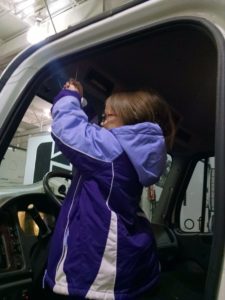
Each year, over 110,000 people are injured and more than 5000 are killed in the United States in motor vehicle accidents involving commercial trucks. Estimates of the percentage of crashes that are partially or completely attributable to fatigue range. Driver fatigue was recently judged to be the number-one problem in commercial transportation.
What is microsleep?
Microsleeps are short bursts of sleep, often experienced without the person even being aware they took place. They can be experienced by anyone who is tired, but the individuals most at risk are those who work night shifts, have a sleep disorder like insomnia or sleep apnea, or are sleep deprived.
What causes microsleep?
One cause for Microsleep is extreme sleep deprivation. Sleep disorders like insomnia, sleep apnea or narcolepsy, or because of environmental factors such as night shifts or over work. Some medications can also induce feeling of excessive daytime sleepiness or drowsiness, which can result in Microsleep.
Boredom or very monotonous, repetitive tasks can induce microsleep in a non-sleep deprived individual, too. Microsleep is most likely to occur during times when the circadian rhythms dictate the body should be asleep, such as around dawn, very late at night, or in the midafternoon.
When the brain is tired, it rests the parts of it that aren’t currently needed – this is referred to as local sleep. Microsleep is when local sleep goes too far and takes over parts of the brain which are currently in use.
What are the symptoms of microsleep?
– You feel sleepy
– You have trouble keeping your eyes open.
– Your eyelids droop or close, present a blank expression, or are constantly blinking.
– You have difficulty focusing on where you are going or what you are doing.
– You yawn a lot.
– Your thoughts wander.
– You feel moody or irritable.
– If you’re driving, you drift off to the side of the road or have trouble keeping in your lane. You miss your exit.
– Your head nods gently with a sudden jerk to wake you. The head jerk is often what makes people realize they experienced a microsleep episode, since the brain won’t recognize the short sleeps as sleep.
What are the risks of microsleep?
According to the AAA Foundation, 16.5 percent of fatal crashes are a result of drowsy driving. Sleep deprivation reduces a driver’s reaction time, alertness, and judgment similar to impairment from alcohol or drug use. In fact, studies have shown drunk driving can be as dangerous as drowsy driving.
What are ways to prevent microsleep?
- Avoid driving during times when you feel less alert.
This will include nighttime, when your circadian biological clock wants you to be asleep, or during the afternoon dip. This could also include early evening for morning larks or early morning for night owls.
- Get sufficient sleep before a long road trip.
Don’t drive when you are sleepy, and pull over for a 20-minute power nap whenever you need a break. Turn the car off by taking the keys out of the ignition, as some states have laws against sleeping while a car is still in operating.
- Keep your mind engaged.
Listen to upbeat music or an entertaining podcast or radio show to help your mind stay focused. There are many apps designed to help you sleep, and there are just as many anti-sleeping apps that will make a noise or vibrate to help you stay alert. Just be careful that you don’t become a distracted driver by looking at your phone.










